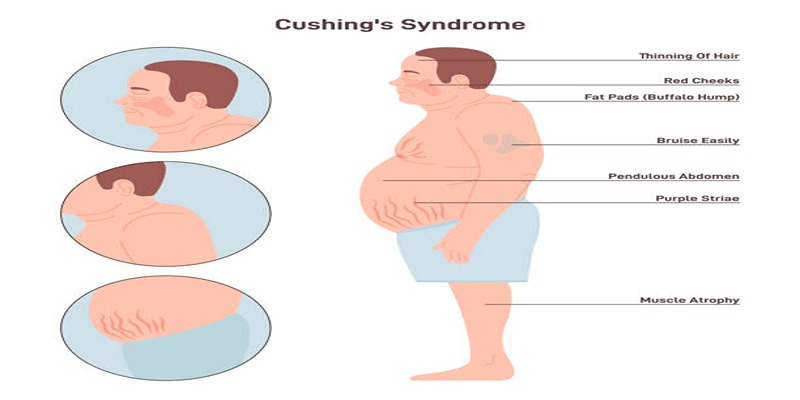What Are the Latest Findings on Omega-3 Fatty Acids and Heart Health?
Essential nutrients, such as Omega-3 fatty acids, play significant roles in maintaining overall health, especially in cardiovascular health. Fatty fish, flaxseeds, and walnuts contain these fatty acids, and they were known to be linked to decreased inflammation, improved blood vessel function, and lower triglyceride levels. Therefore, it was believed that omega-3s would prevent certain types of heart diseases. Yet, current studies prove that omega-3s bring some heart benefits, with additional questions about their long-term effects. Knowing the newest findings regarding the implications can help in making decisions about adding omega-3s to diet or supplements.
Role of Omega-3s in Reducing Risk of Heart Disease
In addition to all this, more studies suggest that taking omega-3 oils considerably contributes to reducing triglycerides, lowering blood pressure, and improving other cardiovascular functions. It might also help prevent arrhythmias and, consequently, sudden cardiac death. On the contrary, earlier studies showed that omega-3s firmly hold grounds for prevention. Still, contradictory new findings show that they may depend on the kind of dosage, diet, and health status of an individual. Some demonstrated modest benefits, while others suggested that omega-3 supplements might not hold as much security against heart diseases for which they were once assumed.

Omega-3 and Cholesterol-the Relationship Above and Below
Omega-3s are well-known as primary components in the therapy against high concentrations of triglycerides within the blood, but their effects on cholesterol have emerged to be more complicated. While they may somewhat increase HDL ("good") cholesterol, they also could elevate LDL ("bad") cholesterol levels in some people. This paradox caused more questions to be raised among the medical aspects as to what the net outcome of omega-3s would be. The kind of omega-3 consumed - EPA (eicosapentaenoic acid) against DHA (docosahexaenoic acid) - is expected to influence the outcomes of these benefits. Some studies reveal that EPA supplements usually have a more favorable outcome with regard to the heart, while DHA tends to put up the levels of LDL cholesterol.
The Anti-Inflammatory Effects of Omega-3s
Another important advantage of these omega-3s is their anti-inflammatory potency. Thus, chronic inflammation becomes a necessary cause for heart disease, which causes plaque buildup in the arteries and, eventually, heart attacks and strokes. They also regulate inflammatory responses within the body by producing lower levels of harmful molecules such as cytokines and prostaglandins. In addition, studies show that people with high levels of omega-3 intake most likely have low levels of inflammation markers. Thus, it is unclear whether there is such a significant correlation with heart disease incidence because inflammation is not a complete picture of good cardiovascular health.
Fish or Supplements: What's Best?
Some individuals resort to fish oil supplements to enhance their omega-3 levels, but is it as good as consuming omega-3s through food? According to studies, eating whole fish like salmon, mackerel, and sardines has more benefits aside from omega-3s alone. Fish has other nutrients for heart health, including vitamin D, selenium, and high-quality protein. Some research suggests that individuals who consume fish on a regular basis are less prone to heart disease, but isolated omega-3 supplements alone have yielded inconclusive results. This leads one to wonder if the synergistic nutritional content of fish would provide better heart protection than isolated omega-3 supplements.
High-Dose Omega-3s: Do They Work Better?
A series of recent clinical trials have examined whether a higher dose of omega-3s offers additional cardiovascular benefits. The REDUCE-IT trial, for instance, discovered that high-dose purified EPA supplementation had a great decrease in major adverse cardiac events in patients with high risk. Nevertheless, no research has had the same outcomes. Specific research indicates that there can be side effects caused by too much consumption of omega-3, like enhanced bleeding risks, gastrointestinal disorders, and, in certain instances, even atrial fibrillation. This has resulted in researchers searching for the optimal dose needed to achieve benefits without compromising on risks.

The Relationship Between Omega-3s and Blood Pressure
Hypertension is a prime cause of cardiovascular disease, and omega-3s have been found to produce a modest effect in reducing blood pressure. Research has shown that people who get enough omega-3s show minor decreases in both systolic and diastolic blood pressure. The process by which this benefit is achieved is believed to include enhanced blood vessel function and decreased arterial stiffness. Yet, omega-3s by themselves are not expected to substitute for usual blood pressure medication in someone who has severe hypertension. Instead, they can be one component of a heart-healthy regimen that includes exercise, a healthy diet, and stress reduction.
Omega-3s and Heart Arrhythmias: A Complex Relationship
Among the most controversial implications of omega-3s for heart health are their potential anti-arrhythmia effects. Omega-3s have been shown in some studies to steady heart rhythms and lower the chances of atrial fibrillation, a condition that raises stroke risk. Yet in other studies, high doses of omega-3s have, in some subjects, especially in those with an underlying heart issue, been reported to increase the risk of atrial fibrillation. This contradictory data calls for the need for more tailored strategies when advising on the use of omega-3 supplements based on personal health status and risk factors.
Conclusion:
Omega-3 fatty acids certainly have something to do with heart health, but their effects depend on a variety of things, such as diet, dose, and the health status of the individual. Although they are highly beneficial in reducing triglycerides, fighting inflammation, and maintaining blood pressure, there is still some ambiguity about their total efficacy in averting heart disease. A balanced strategy—utilizing whole food sources, supplementing if necessary, and living a heart-healthy lifestyle—continues to be the optimal plan. As studies proceed, keeping abreast of future research will allow individuals to make more informed choices regarding the use of omega-3s as part of a heart health regimen.












